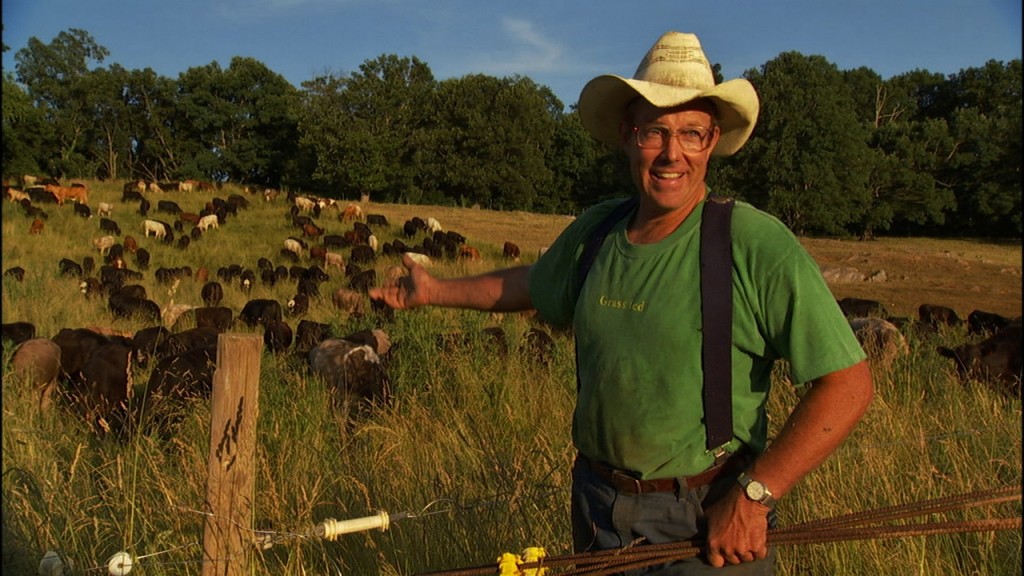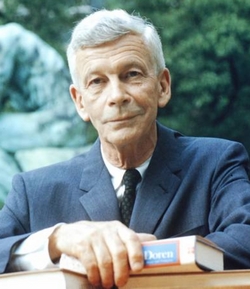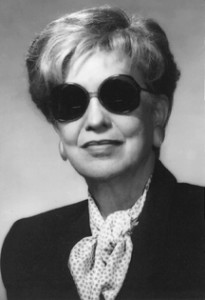Please visit this link HERE to watch the documentary “Fresh.” This film takes a look at the deficiencies and horrors of American Industrial Agricultural, but also provides a glimpse of several different organizations or farmers that are working today to create sustainable, philosophically sound, ethical, organic, and natural options for farmers and consumers. It is only an hour long, but it will make a big difference for you. In the restoration of Christian Culture Dr. John Senior said of the Industrial Revolution (perfectly applicable to American Industrial Agriculture):
With sweet succession taught e’en toil to please
These round thy bowers their cheerful influence shed,
These were they charms–But all these charms are fled.
Why fled? Because even by Goldsmith’s day unbridled greed, set free from the healthy, cheerful restraints of Christianity, ran toward ruthless Epicureanism which disguised its radical irrationalism under the painted rubric of the Age of Reason, the so-called Enlightenment, in reality a dark misology which said that reason is the instrument of man and not of truth, and that we are slaves to truthless human systems in the application of reason to the fulfillment of lust in what we call the Industrial Revolution, first wave of the bloody tide of revolutions we haven’t seen the end of yet. Goldsmith, living up to his name, like the perfect craftsman, fixed his righteous indignation in a couplet:
Ill fares the land, to hast’ning ills a prey,
Where wealth accumulates and men decay:
Princes and lords may flourish or may fade;
A breath can make them, as a breath has made;
But a bold peasantry, their country’s pride,
When once destroyed, can never be supplied.
A time there was, ‘ere England’s griefs began,
When every rood of ground maintained its man;
For him light labour spread the wholesome store,
Just gave what life required, but gave no more;
His best companions, innocence and health;
And his best rices, ignorance of wealth.
But times are alter’d; trade’s unfeeling train
Usurp the land and dispossesss the swain;
Along the lawn, where scattr’d hamlets rose,
Unwieldly wealth, and cumbrous pomp repose;
And every want to opulence allied,
And every pang that folly pays to pride.
Those gentle hours that plenty bade to bloom,
Those calm desires that ask’d but little room,
Those healthful sports that grac’d the peaceful scene,
Liv’d in each look and brighten’d all the green;
These, far departing, seek a kinder shore,
And rural mirth and manners are no more.
After viewing and thinking about “FRESH” I have a few thoughts to share. One of the chiefest pleasures of “FRESH” was to hear Joel Salatin; he really is a farmer and a philosophical realist: “the chickenness of the chicken,” and its particular way of being really does matter. I was surprised at how difficult it was for that family Mr. and Mrs. Fox to look at their interviewer…they were utterly ashamed of themselves. I find it a wonder that nobody seems to know about what is going on in these industrialized feed lots and such. A thing of beauty pleases the eye: there is order, harmony and proportion in something noble and fine, and thus pleasing to gaze upon, but the feed lots are not fine and noble and are thus not pleasing to look at. By comparison, Salatin’s family farm is pleasing to behold: there is an order and proportion to things. Salatin, like a philosopher king, orders the landscape and lives of the animals for their good, and the good of society.
I am going to try to look around Phoenix for a place to buy good food from local farms. Does anyone know of any good places?

Joel Salatin
“You, as a food buyer, have the distinct privilege of proactively participating in shaping the world your children will inherit.” ― Joel Salatin




